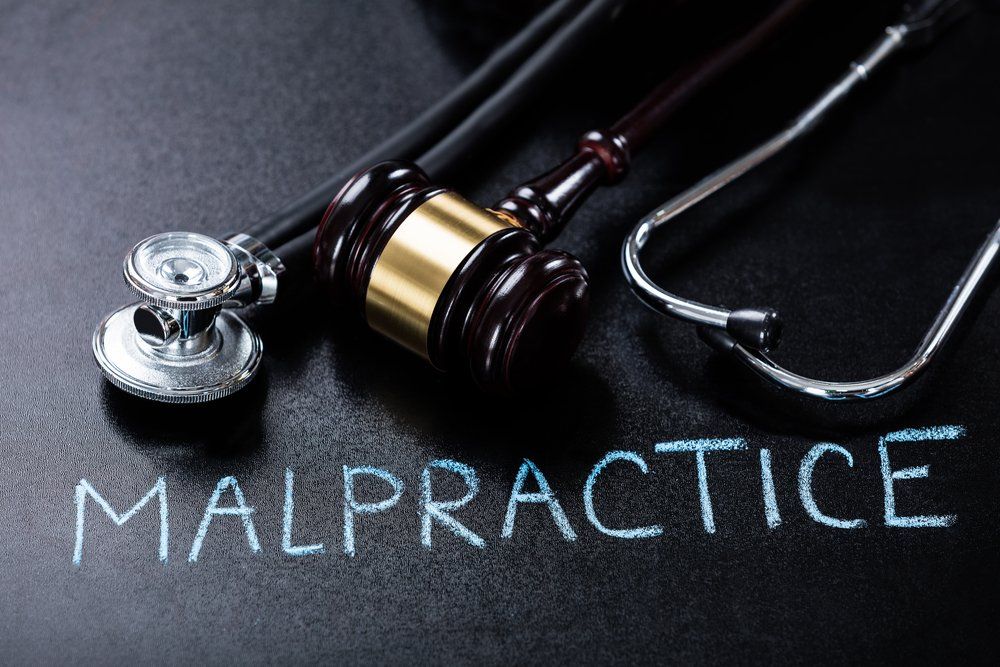What is Malpractice?
Malpractice, in general, refers to an improper or negligent professional activity. Medical Malpractice, by definition, is the breach of the duty and standard of care by a healthcare professional. Standard of care is referred to as what a reasonable medical provider would or would not have done under similar circumstances.
Medical malpractice is subtly different from medical negligence in that the latter does not involve intent. The negligence can result in a mistake in treating the patient. But, whether it’s medical malpractice or negligence, it ultimately boils down to the lack of care on the part of the healthcare professional which results in harming the patient.
What Makes Up for Medical Malpractice?
Since medical malpractice is something that causes significant harm to a person or a family; it requires victims to file a claim. However, not all instances of damage to the patient can be cited as a result of medical malpractice. It is therefore important that you understand which incidences or what constitutes medical malpractice.
Following are the most common and accepted instances:
-Failure to diagnose a disease/ailment or misdiagnosis eventually leading to wrong treatment
-Not paying enough attention to or simply misrepresenting laboratory results
-Not recommending the required tests
-Failure in recognizing the symptoms of a disease
-Unnecessary surgery, which could have been avoided
-Errors in surgery
-Wrong medication or improper dosage of prescribed medicines
-Lack of proper follow-up or aftercare
-Discharging prematurely without observation
-Not considering the patient’s history seriously
In all the above instances, the doctor or the healthcare professional could have acted in a different way to avoid the negative consequences. Hence, these are considered to be acts of negligence, prompting the victim to file a claim.
When Can You File a Medical Malpractice Claim?
Medical malpractices that lead to subsequent harm are worth claiming for. However, medical malpractice claims, like all other types of claims, involve legal complexities. A claim, in order to be passed, must contain the essential elements. So, here is what an ideal medical malpractice claim should cover:
The Presence of a Duty – In order to establish a breach of duty, the presence of a duty of the medical practitioner towards the patients must be established. When it comes to a claim, the nature of this duty is required to be established. Again, the location of the care matters depending on the availability of technology and state-of-the-art infrastructure.
Breach of the Standard of Care – For a claim to be valid, the health care provider must be proven to have violated his duty and deviated from the standard of care due to negligence. Once both the duty and the breach of it is established, it is examined as to what the health care provider could have done and what he didn’t do, resulting in the subsequent damages.
Causation – In medical malpractice claims, the causation or the fact that a particular instance of negligence actually led to certain damages, must be established and proved. Because, some injuries can result even without negligence, these will be considered risks and attributed to the patient’s medical conditions, history etc. A claim is valid only when the health care provider commits an act of negligence and this act leads to the patient’s injuries.
Damages – This is definitely the most important part of a claim. The medical malpractice must result in severe damages thereby paving the way for a claim on part of the victim. However, damages include both the immediate losses as well as the prospective losses in future due to the negligence. These include loss of earnings, medical expenses, a necessity for assistance and similar things.
Filing Malpractice Claims with an Attorney
Filing for a medical malpractice can be a tedious process involving legal intricacies that are hard to decipher for any layman, with no prior experience of filing claims. The expert guidance of an attorney is much needed because a medical malpractice professional knows the exact ways of putting across a claim in a way and with all the clauses that ensure success.
Here are some traits to look for in a medical malpractice attorney:
-Look at how experienced he/she is.
-Check if the lawyer will take your case on contingency
-Check if the attorney has access to medical witnesses and data related to your case
-A good attorney will have a fair knowledge of the medical field or have expert medical practitioners they consult with.
You’ll need evidence, reasoning and expert witnesses to back your case to receive the right amount of compensation. At the
Law Offices of Alvin de Levie, we can help you out during these troubled times. Give us a call
844-777-2529
for a free case review.






























